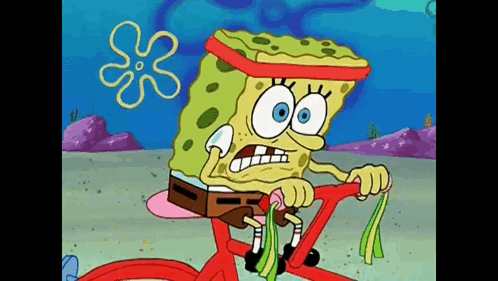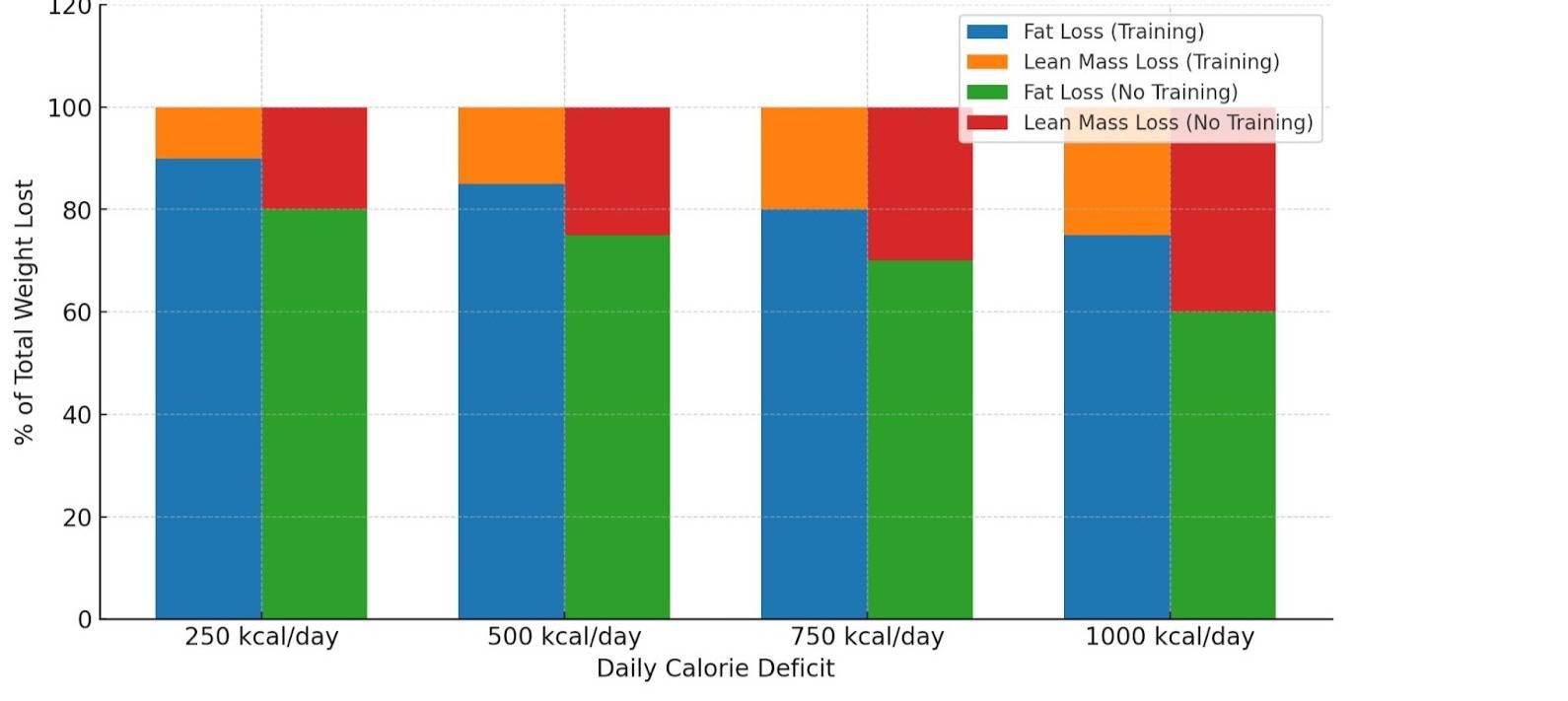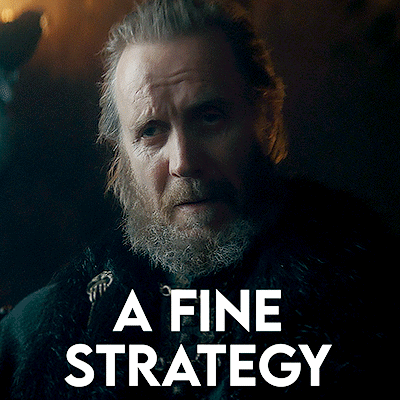There’s a chart I want to show you today.
It shows the percentage of fat vs. fat-free mass lost at different levels of calorie deficit, depending on whether you’re strength training or not. (You’ll find it below.)
It also sheds light on one of my LEAST favorite trends I see in the fitness industry today: making sweeping statements without any context.
And with the rise of GLP-1 medications like Ozempic and Wegovy, I see this one popping up all over the place:
“If you don’t eat enough protein and lift weights, you’re just losing all of your muscle.”
We’ll get into it, but extreme statements like this are just wildly unhelpful, and miss so much of the important nuance.
Is strength training useful when you are on these medications or a calorie deficit in general? Yes.
But if you listen to the general chatter on the internet (never really a good idea), it makes it sound like muscle is literally falling off of your body with each step you take. And that’s not only fear-mongering, it’s just not true.

Let’s zoom out:
I want to break down what’s actually happening in your body so we can have some real talk about the different tradeoffs involved.
✅ If you’re in a calorie deficit, you’ll lose weight
✅ Whenever you lose weight, there is always some amount of loss of lean mass. (I.e. stuff other than fat)
✅ Strength training and eating higher amounts of protein can help you preserve more of your muscle mass while in a caloric deficit
✅ The larger your deficit, the more lean mass you tend to lose regardless of what you do.
✅ And GLP-1s don’t change that – they just help people stick to larger deficits than they might otherwise.
So to recap, whenever anyone in the history of forever has lost weight, some of that has come from lean mass.
The larger the caloric deficit you are in (i.e. the faster you are losing weight), the greater the percentage of that weight will come from lean mass. This is totally normal and expected.
Strength training and eating higher amounts of protein can absolutely help you preserve more of your lean mass. But you’re not going from “losing all muscle” to “losing zero muscle.” These changes are degrees, not all-or-nothing.
How much of a difference can training and eating more protein make?
I’m so glad you asked!
Here’s a chart that shows on average where we expect weight loss to come from. (Individual results will vary based on genetics, type of training, diet, etc.)


In general, strength training helps preserve an extra 10-15% of lean body mass.
So, for example, if you lost 10 pounds over the course of 3 months on a 500 kcal/day deficit, you’d expect around 2.5 pounds of that to be from lean mass if you weren’t training, and 1.5 pounds of that to be from lean mass if you were training (I.e. a 1 pound difference.)
Why this matters:
I see so many people get discouraged because they feel like they’re not “doing it right.”
Maybe they’re not strength training yet.
Maybe they haven’t figured out how to hit their protein goals.
Maybe they’re just trying to stay consistent with any part of the process.
And they start hearing things like:
“You’re just losing muscle.”
“You’re ruining all your progress.”
“You’re doing it wrong.”
But in reality? You’re just making a trade-off.
As an example, maybe a slight caloric deficit with no strength training is easier for you to maintain than a much higher deficit with strength training added in. Sure, it may take longer to see the weight loss – but the ratio of fat free and fat mass is essentially the same in each of these scenarios.
Or maybe you consciously go on a larger caloric deficit for a short period of time, and follow that up with a more focused muscle-building phase to rebuild some of that lean mass. That’s another viable strategy.
The point is: if we can cut through the fear mongering and wildly overblown statements, we can have an actual discussion about what’s the best choice for you based on where you’re at currently.


Real talk from a coach:
If you’re just getting started and weight loss is your goal, focusing only on staying in a modest calorie deficit might be the best move.
That alone can help reduce joint pain, improve energy, and boost confidence.
Then once that’s solid? Add in strength training.
Then protein.
Then maybe some walking or sleep habits.
You don’t have to do everything, everywhere, all at once to be successful.
In fact, most of the people we work with find success by building a foundation and then adding to it – one habit at a time.
TL;DR:
- Yes, eating enough protein and lifting weights will help you keep more muscle.
- Bigger calorie deficits = more muscle loss, even if you’re doing everything else “right.”
- But these are degrees, not disasters.
- Focus on what you can do.
Want to chat about how to apply this to your plan? Just hit reply and let me know.
You’ve got this.
-Matt

.jpg?ssl=1)

.jpg?ssl=1)